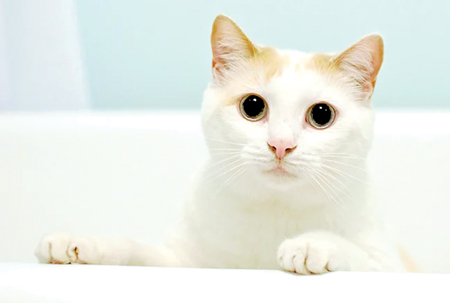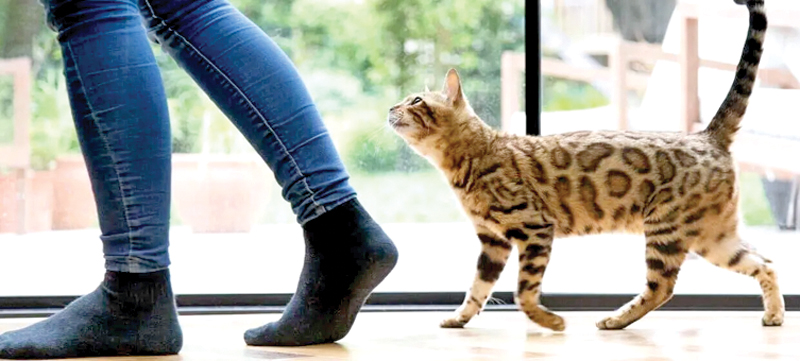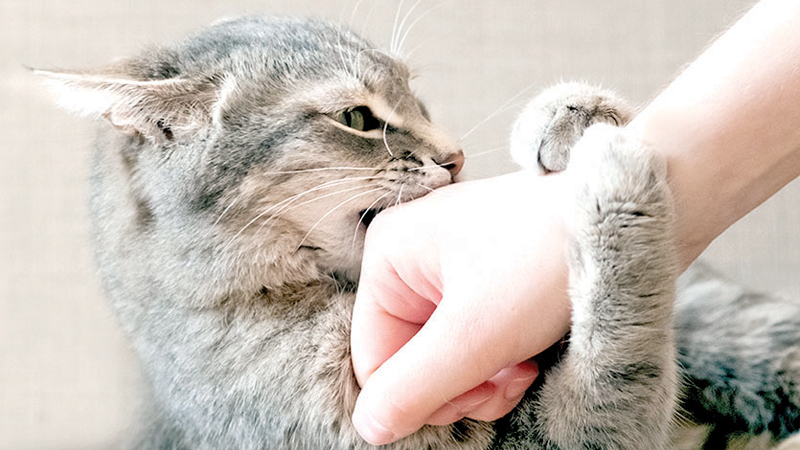Dogs will bark their love at you. They’ll jump, wag, lick, nudge. There’s no mystery there. But cats? They love us in silence, with sidelong glances, and with a patience that demands you lean in and listen. To the uninitiated, cats might seem distant or indifferent.
They’re not known to meet you at the door tail-wagging or drop toys at your feet with sloppy enthusiasm. And that has long given them an unfair reputation: aloof, cold, self-centered. But anyone who has truly lived with a cat—who has shared quiet mornings, thunderstorm nights, and the warm silence of a slow afternoon—knows that this image couldn’t be further from the truth.
Cats do love. Fiercely, deeply, and often with a loyalty that spans years. They just speak a quieter language.
Why Don’t Cats Show Love Like Dogs? It’s simple: cats aren’t dogs. Evolution, survival instincts, and social structures have shaped these animals in very different ways.
Dogs are pack animals. They’ve evolved to follow a leader, to please, to be social and demonstrative. Their ancestors depended on tight cooperation for survival. That’s why a dog will roll over, beg, and follow you from room to room. You’re their person—and in their eyes, maybe their pack leader.
Cats, on the other hand, are solitary hunters by nature. Their ancestors survived by relying on themselves. They stalked prey alone, guarded their territory fiercely, and didn’t need a pack to thrive. Their social bonds, when they formed them, were subtle. More about trust than hierarchy. More about coexistence than submission.
So a cat’s love isn’t loud. It’s not about approval or obedience. It’s about presence, comfort, and an unspoken agreement that you matter to them.
Showing love
If you’re waiting for a cat to come running into your arms, you’ll likely be disappointed. But if you pay attention, you’ll see their affection in a thousand small gestures. The slow blink is the feline equivalent of a kiss. When a cat looks at you and slowly closes and opens its eyes, it’s not just feeling relaxed—it’s showing trust. It’s a moment of shared vulnerability, a gentle “I see you, I like you.”
 When a cat bumps their head against yours, or rubs their face along your cheek, arm, or leg, they’re marking you with their scent. It’s a territorial claim, yes—but also a sign that you’re part of their safe zone, their chosen few.
When a cat bumps their head against yours, or rubs their face along your cheek, arm, or leg, they’re marking you with their scent. It’s a territorial claim, yes—but also a sign that you’re part of their safe zone, their chosen few.
When your cat follows you from room to room that is a display of affection. They may not be jumping into your lap every chance they get, but if your cat pads behind you as you go about your day, that’s affection. They’re choosing to be where you are.
While cats can purr for many reasons (sometimes even when they’re scared or unwell), a deep, steady purr when they’re relaxed against your side is a sure sign of contentment. You’re part of their comfort.
If your cat digs its paws into you like it’s trying to make biscuits, it’s echoing kitten behaviour from nursing days. It’s a memory of comfort, warmth, and safety—and a sign they feel all of that with you.
When are cats happy?
Cats don’t jump with glee, but they show happiness in a thousand ways. Look for the tail that’s upright with a soft curl at the tip as they walk toward you. That’s feline happiness. Notice the way they stretch luxuriously when they see you, or flop onto their side, belly exposed—not an invitation for petting, necessarily, but a gesture of trust.
A happy cat may chirp or trill when you talk to them. They may sleep with their paws tucked under like a loaf of bread, eyes half-closed, world at peace. They might even chase a speck of dust with sudden, joyful abandon. And sometimes, happiness is in stillness—the quiet, watchful kind where they sit beside you as you work, blink slowly, and simply exist.
Cats don’t demand our joy. They invite it. They slow us down. Their stillness, their deliberate movements, remind us to pause. In a world of noise and push and speed, a cat curled on a windowsill can be a lesson in presence.
They make us comfortable without much effort. The soft weight of a cat on your lap during a hard day is like a silent reassurance: you’re not alone.
They are amusing. A cat chasing a crumpled paper ball with the intensity of a lion on a savannah is pure comedy. Their odd habits, their sudden zoomies, their fascination with cardboard boxes—all tiny reminders not to take life too seriously.
They bring beauty. Their elegance, their symmetry, the way they curl into perfect circles or leap with impossible grace—cats are living art.
And, perhaps most of all, they offer the kind of companionship that asks for nothing but respect. They don’t perform for our approval. They don’t fake loyalty. They choose us. And when a cat chooses you, it feels like a quiet miracle.
Cats won’t chase your car as you drive away. They won’t leap up and down when you come home. But they’ll sit at the window, waiting. They’ll blink slowly when they see you.
They’ll curl beside you at night, warm and wordless and full of trust.
It’s not a loud love. But it’s real. And once a cat has loved you, you’ll never look at silence the same way again.
(This article is based on several research articles, books and newspaper articles on feline behaviour)

How to keep a cat happy
It’s not about pampering. It’s about understanding.
Give them space
Cats need quiet corners, high perches, places to retreat. A cat that feels safe will be a cat that loves more freely.
Respect their autonomy
Don’t force cuddles. Let them come to you. A relationship on their terms is deeper and more genuine.
Play with them
Cats are hunters at heart. Toys that mimic prey—feathers, strings, moving targets—light up their instincts and keep them mentally sharp.
Feed them well
Quality food, clean water, a clean litter box—these are basics. But they’re also signs of respect. Cats are fastidious creatures, and they thrive on cleanliness and consistency.
Talk to them
Seriously, cats are surprisingly responsive to voice and tone. They may not understand every word, but they get the rhythm of your speech, the emotion in your voice.
Routine
Cats like knowing what to expect. Try to keep feeding and playtime consistent. Predictability makes them feel secure.
Love them, even when it’s quiet
Cats may not be outwardly affectionate all the time. But they remember kindness. They feel it. And they return it—on their own mysterious, beautiful terms.




